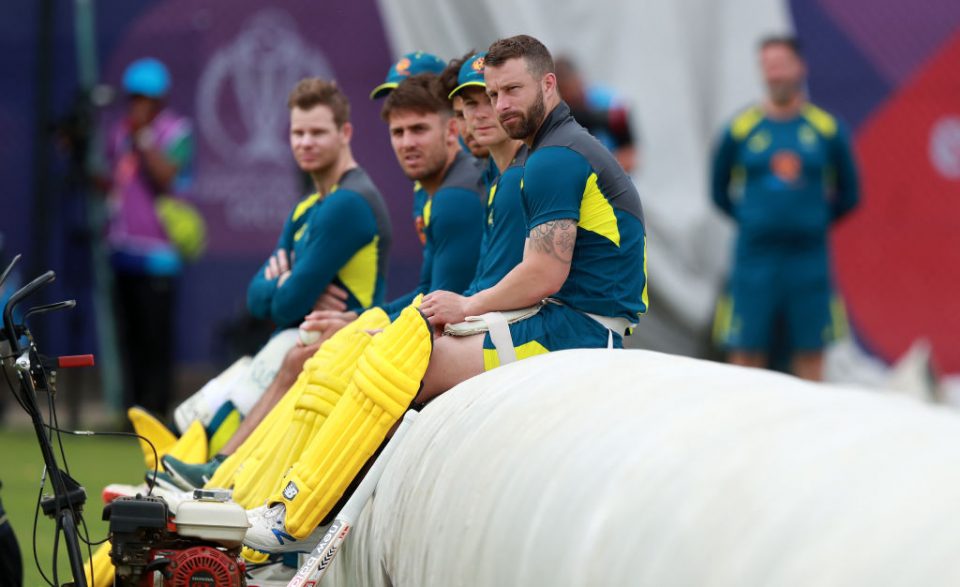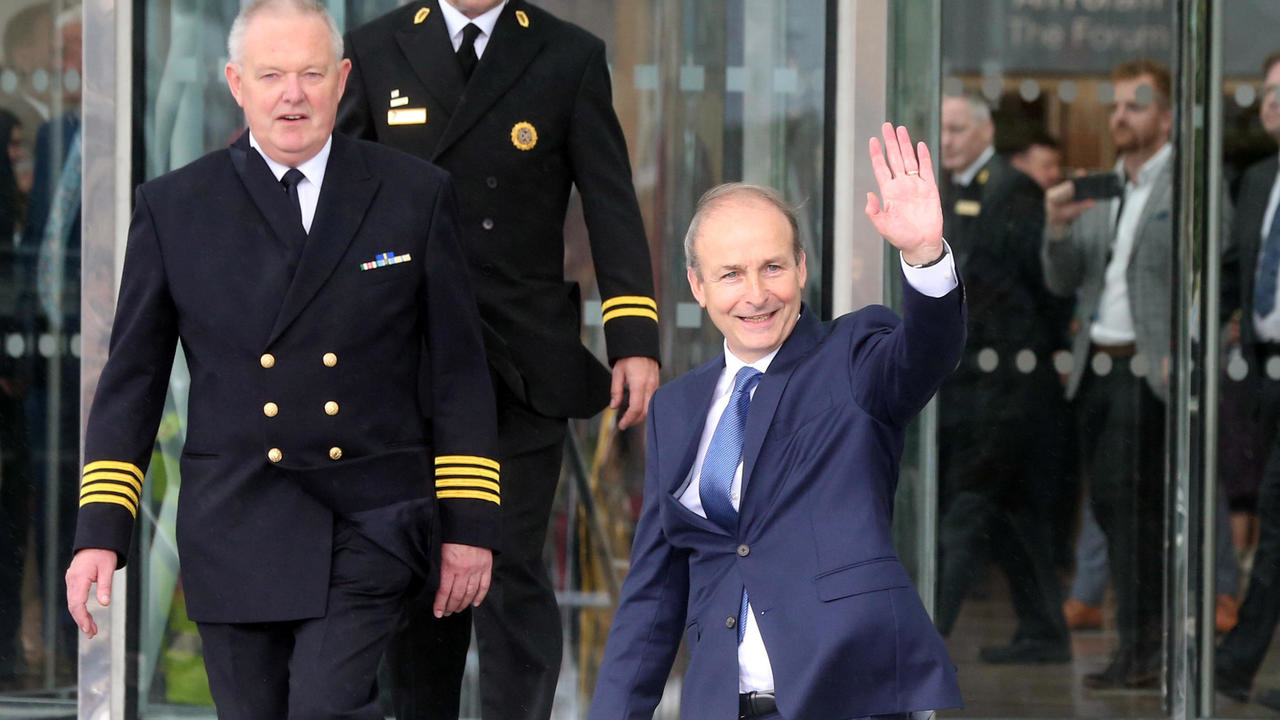If they arent already, England and Australia are going to become very familiar with each other this summer.
Having played twice already, and with the small matter of the Ashes edging ever closer, the two sides meet tomorrow in a Cricket World Cup semi-final.
The match is an intriguing one, framed by two potentially decisive factors: Australias World Cup experience and Englands fondness of Edgbaston.
Australia are undoubtedly the gold standard when it comes to crunch situations. Theyve been there, done that and ensured all the T-shirts on sale are canary yellow.
Read more: Why Englands cricketers have a trademark problem
The men from Down Under have won a record five World Cups and have a preposterously good record in semi-finals: played seven, won six and drawn one (which, incidentally, sent them through to the 1999 final, that they then won). They are the only side to have reached the last four and never lost a semi-final.
The personnel may have changed, with only five of the current players part of the squad which won the 2015 World Cup, but these things matter. Confidence comes naturally to Australia. They have ingrained self-belief unlike any other side, and with old stagers Justin Langer and Ricky Ponting on the coaching staff you can bet it will have been reinforced.
Whether their “earthing” session, which saw every player go barefoot on the Edgbaston outfield on Tuesday to, in the words of batsman Peter Handscomb, feel “the positive and negative energy flowing through and coming out of the earth”, will help remains to be seen. But the fact that England have not beaten Australia at the World Cup since 1992, with Australia claiming the past four encounters, gives the away side a valuable edge.
Fortress Edgbaston
Australias trump card of a proven track record in the latter stages of World Cup goes up against Englands proven track record at Edgbaston.
“Its a place that we really like playing,” England captain Eoin Morgan said after their final group stage win over New Zealand.

The love of playing in Birmingham is well-placed. Englands all-time record of 23 wins in 40 ODIs at Edgbaston may not be too impressive on the face of it, but they have won their last four at the ground, with the vocal support, boundary dimensions and pitch conditions suiting their playing style.
The fact that Australia are yet to play in Birmingham in the tournament and have not won at Edgbaston against any opposition in any format since 2001 – a run of nine games – merely adds credence to its christening as Fortress Edgbaston.
Injury niggles
Another factor perhaps in Englands favour is fitness. While Jason Roy has made a triumphant return from a hamstring injury and Adil Rashids shoulder problem has held off, Australia will be sending out a patched up team.
Handscomb makes his World Cup debut in place of the stricken Usman Khawaja, while Matthew Wade and Mitchell Marsh have been brought in from the Australia A tour as cover after Shaun Marsh broke his arm. Marcus Stoinis has apparently shaken off a side strain.
However, their big weapons are in fine condition and primed to fire. Australias success in the tournament has been built on their outstanding opening partnerships between David Warner and Aaron Finch and the brilliant multi-dimensional threat of Mitchell Starc.
England know plenty about both, having seen Warner and Finch put on 123 for the first wicket in their group stage meeting at Lords last month before Starc combined with feRead More – Source
If they arent already, England and Australia are going to become very familiar with each other this summer.
Having played twice already, and with the small matter of the Ashes edging ever closer, the two sides meet tomorrow in a Cricket World Cup semi-final.
The match is an intriguing one, framed by two potentially decisive factors: Australias World Cup experience and Englands fondness of Edgbaston.
Australia are undoubtedly the gold standard when it comes to crunch situations. Theyve been there, done that and ensured all the T-shirts on sale are canary yellow.
Read more: Why Englands cricketers have a trademark problem
The men from Down Under have won a record five World Cups and have a preposterously good record in semi-finals: played seven, won six and drawn one (which, incidentally, sent them through to the 1999 final, that they then won). They are the only side to have reached the last four and never lost a semi-final.
The personnel may have changed, with only five of the current players part of the squad which won the 2015 World Cup, but these things matter. Confidence comes naturally to Australia. They have ingrained self-belief unlike any other side, and with old stagers Justin Langer and Ricky Ponting on the coaching staff you can bet it will have been reinforced.
Whether their “earthing” session, which saw every player go barefoot on the Edgbaston outfield on Tuesday to, in the words of batsman Peter Handscomb, feel “the positive and negative energy flowing through and coming out of the earth”, will help remains to be seen. But the fact that England have not beaten Australia at the World Cup since 1992, with Australia claiming the past four encounters, gives the away side a valuable edge.
Fortress Edgbaston
Australias trump card of a proven track record in the latter stages of World Cup goes up against Englands proven track record at Edgbaston.
“Its a place that we really like playing,” England captain Eoin Morgan said after their final group stage win over New Zealand.

The love of playing in Birmingham is well-placed. Englands all-time record of 23 wins in 40 ODIs at Edgbaston may not be too impressive on the face of it, but they have won their last four at the ground, with the vocal support, boundary dimensions and pitch conditions suiting their playing style.
The fact that Australia are yet to play in Birmingham in the tournament and have not won at Edgbaston against any opposition in any format since 2001 – a run of nine games – merely adds credence to its christening as Fortress Edgbaston.
Injury niggles
Another factor perhaps in Englands favour is fitness. While Jason Roy has made a triumphant return from a hamstring injury and Adil Rashids shoulder problem has held off, Australia will be sending out a patched up team.
Handscomb makes his World Cup debut in place of the stricken Usman Khawaja, while Matthew Wade and Mitchell Marsh have been brought in from the Australia A tour as cover after Shaun Marsh broke his arm. Marcus Stoinis has apparently shaken off a side strain.
However, their big weapons are in fine condition and primed to fire. Australias success in the tournament has been built on their outstanding opening partnerships between David Warner and Aaron Finch and the brilliant multi-dimensional threat of Mitchell Starc.
England know plenty about both, having seen Warner and Finch put on 123 for the first wicket in their group stage meeting at Lords last month before Starc combined with feRead More – Source












